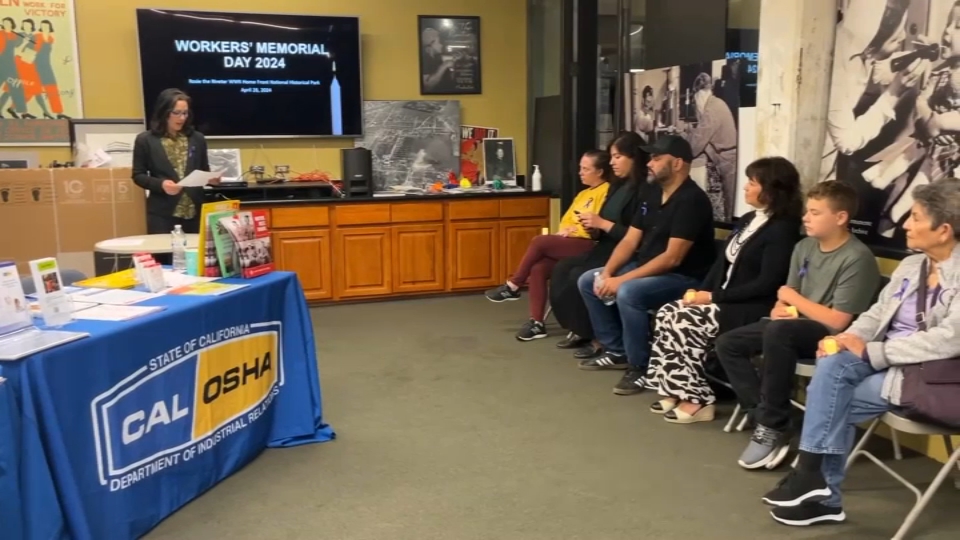A newly-issued report from the National Retail Federation says the industry lost $112 billion to retail crime during the last fiscal year. The group called it a “dramatic jump.” Some stores are fighting back with artificial intelligence.
A daily threat
Viral smash-and-grab videos steal the headlines. But stores say a daily and long standing threat eats into profits, too.
“It’s the everyday shoplifter -- the people who are taking two, three, four or five dollars at a time and coming in all the time,” said Bennie Tiapon, an independent grocer in Petaluma. Tiapon said his team is constantly catching shoplifters. “At least one shoplifter everyday,” he said.
Get a weekly recap of the latest San Francisco Bay Area housing news. Sign up for NBC Bay Area’s Housing Deconstructed newsletter.
But he says far more go undetected. So now, he’s adding a new layer of artificial intelligence to his store’s security cameras. All 36 cameras feed into an A.I. system developed by a tech company called Veesion. It analyzes the video feeds for telltale movements that suggest someone is stealing.
Benoit Koenig, Veesion’s Co-Founder, explained what the system is scanning for, “It’s people in a store placing items in a backpack, a purse, in their trousers, in a jacket, or consuming the product.”
Koening invited me to try it -- playing the thief. I walked down the wine aisle and slipped a bottle in my backpack. “We just have to wait a few seconds,” Koening said.
Local
I 'stole' some wine. Was AI watching?
Less than a minute later, an alert labeled “Very Suspicious” popped up on a manager’s phone -- complete with a video clip of me putting the wine in my backpack. Without A.I., my crime might’ve gone undetected.
“The algorithm doesn’t care what people look like,” Koening said. “It’s just recognizing a gesture … that can be done by anyone.”
Veesion says it’s signed up 300, mostly independent U.S. stores for its new A.I. That’s a tiny slice of U.S. retailers. But Veesion is not the only one on the job.
To see what else is on the horizon, we traveled 2,500 miles east to the University of Florida, in Gainesville, Florida. It’s home to the Loss Prevention Research Council.
“We’ve got 230 to 250 … technologies in here,” said Director Read Hayes, a criminologist. He whisked me through several laboratories, including a mock store -- complete with shelves, a checkout lane, and such.
One-of-a-kind lab targets theft
“This is the only place in the world like it,” Hayes said. “There’s A.I. in here that can pick up whether you’re not really scanning an item at self checkout.”
Scientists here are working with 110 tech companies and 88 retailers, to cut stores’ losses.
The tech here, like a tiny, concealed exit camera, is focused on identifying and stopping shoplifters -- one-off thieves and smash and grab crews alike. The lab’s crawling with cameras, and often, retail executives.
“They want to brainstorm with us, but also spend time in these labs,” Hayes said. “None of them have told us that shoplifting, or theft, or losses are down or flat.”
A 2022 National Retail Federation Security Survey found 52.4% of stores are “increasing budgets specifically for capital and [security] equipment.” Hayes explains, “we’re talking about 10’s of millions more, nationally.”
Back in Petaluma, Veesion told us a small A.I. system like Tiapon’s costs just a couple hundred dollars a month.
Goal: A lower grocery bill
“This is a fraction of what a security guard would cost,” said Tiapon.
Taipon says during the first few weeks, his system flagged several people for pocketing an item. And his teams have approached them. “Typically, they say, ‘I’m sorry.’ And give it back. That’s all we want. Please don’t do it again.”
Deterrence would be a big win for Tiapon. And maybe for shoppers. “I hope that for shoppers it eventually means groceries will cost a little less if we can stop shoplifting,” he said.



